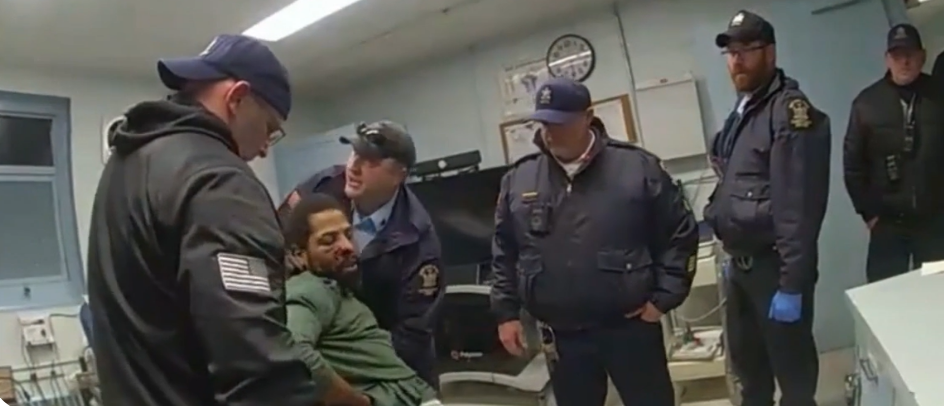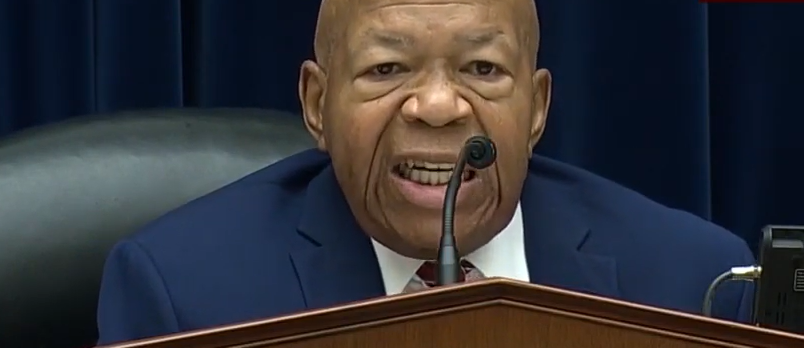Rep. Rangel
[National]
Echoing the increasing support for ending the Cuban embargo, including former Floridan Governor Charlie Crist who once opposed the idea, Congressman Charles B. Rangel reiterated his call for the free exchange of people, goods and ideas between the U.S. and Cuba.
Rangel (D-New York) has repeated introduced bills that would open trade between the two countries, lift travel restrictions on Cuba, and increase exports to the island nation.
During his appearance last Friday on HBO’s “Real Time With Bill Maher,” Crist said the U.S. embargo of Cuba should end. “I mean the embargo has been there what 50 years now?,” the former governor said. “I don’t think it worked. It is is obvious to me that we need to move forward and I think get the embargo taken away. Really. I believe that.”
“For too long our country has adhered to failed and outdated policies towards Cuba that has benefited neither the United States nor the people of Cuba,” said Rangel, who has been a strong proponent of normalizing the U.S.-Cuban relationship. “Allowing trade, travel and other goods into Cuba will do more than just open markets and trade with our neighbor. We will be able to transmit American culture and ideals that can help foster democratic principles in Cuba.”
Rangel’s three bills, most recently introduced in May 2013, include H.R.872 – Free Trade With Cuba Act of 2013, H.R.871 – Export Freedom to Cuba Act of 2013, and H.R.873 – Promoting American Agricultural and Medical Exports to Cuba Act of 2013. Rangel first introduced the Free Trade With Cuba Act in 1993, during the 103rd Congress.
According to a 2009 U.S. International Trade Commission Report, the effect of lifting trade restrictions on Cuba would increase U.S. exports to that nation from approximately $924 billion to $1.2 trillion, an increase of anywhere from $216 to $478 million dollars. The boost to tourism and travel as a result of lifting travel limits would significantly increase Cuban demand for agricultural and commercial products and allow for the purchase of more American products, according to the report.
“Following Cuba’s market-oriented reforms introduced under Cuban President Raul Castro, my bills could help transition the long-isolated Caribbean nation to a more free economy in the longer term,” Rangel said. “Our currently policy on Cuba is outdated and ineffective. It’s been more than 50 years since the Missile Crisis; it is time to reshape our foreign policy toward our closest Caribbean neighbor.”
“Just as Beyoncé and Jay-Z were able to travel to Cuba, any American should be free to enjoy Cuba’s beautiful culture firsthand,” added Rangel.
H.R.872 – Free Trade With Cuba Act of 2013.
Established in 1962, the trade embargo on Cuba represents a glaring inconsistency in U.S. foreign policy. While foreign competitors are increasing trade with Cuba, the United States is falling behind at a time when our country should be seeking new ways to increase commerce and trade. Accordingly, the Free Trade With Cuba Act of 2013, would: End all aspects and provisions of the United States’ trade embargo on Cuba. H.R.871 – Export Freedom to Cuba Act of 2013
The travel restrictions on Cuba prevent not just the free flow of people, goods, and ideas, but are preventing a potentially booming tourist industry from taking root and creating jobs. The bill would provide for: Allowing travel of all US citizens and legal residents to Cuba for any reason.
H.R.873 – Promoting American Agricultural and Medical Exports to Cuba Act of 2013
American agricultural goods accounted for nearly $750 million dollars of total Cuban agricultural imports from 2000-2008, and represented 35% of all Cuban agricultural imports from 2003-2008. The growing importation of American goods by Cuba should lead the United States to increase exports to a nation that has a demonstrated demand for American goods. Reintroduced from the 112th Congress, The Promoting American Agricultural and Medical Exports to Cuba Act provides for:
>Increase export of U.S. agricultural products to Cuba.
>Authorize direct transfers between Cuban and U.S financial institutions.
>Facilitate issuance of visas to Cuban officials for inspecting U.S. facilities.
>Lift all travel restrictions to Cuba.
>Removal of impediments to the export to Cuba of medical devices and medicines.







